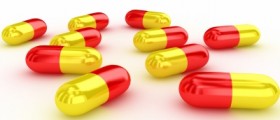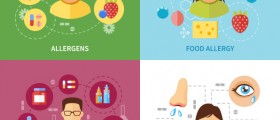
Not many people are familiar with the fact that drug allergies are quite frequent these days, and have therefore been regarded as something that requires immediate attention and treatment, given the fact that if left untreated, they can cause havoc and harm one's health to a great extent. As for the definition as such, a drug allergy is characterized by an allergic reaction to a specific drug, i.e. medication a person takes. Once the referred to drug is taken and has found its way into the person's body, it induces an immune system response. As a direct result of this, the immune system itself begins producing lgE antibodies, i.e. particular proteins whose main purpose is to battle specific antigens. Another result of this process is that the person's body reaches a highly sensitive condition. This means that each subsequent time the person in question takes that medication, the above said antibodies will activate and produce substantial quantities of histamine for the purpose of expelling the medication in question from one's body once and for all.
Most prominent manifestations
Manifestations that tend to occur due to the presence of a drug allergy can vary in intensity and severity, starting from those mild ones and all the way to those that pose a serious threat to the general well-being of the people and sometimes even lead to those life-threatening states. One of the most frequent manifestations is, of course, an upset stomach. But, in the course of an ongoing allergic reaction, histamines get released and it is them that induce a number of undesired symptoms such as hives, skin rash, itchy skin and eyes, congestion, swelling of the person's mouth and throat, etc. Those more severe allergic reaction induce more serious manifestations such as the following – severe breathing difficulties, blueness of the skin, giddiness, anxiety, confusion, fainting, rapid pulse, diarrhea, nausea and various abdominal complications.
Drugs and medication to stay away from when possible
Regarded as those which most frequently induce allergic reactions are the following drugs – penicillin (in the greatest majority of cases) and antibiotics resembling penicillin. Also, drugs that are known not to induce those reactions that are initiated by the lgE antibodies are sulfa drugs, barbiturates, anticonvulsants, Aspirin, non-steroidal agents, and last but not the least contrast dye material.
Having the most effective and beneficial treatment methods in mind, deemed as most frequently employed are antihistamines, corticosteroids, adrenergic bronchodilators or epinephrine.
- medlineplus.gov/ency/article/000819.htm
- healthfinder.gov/api/Outlink/Search/http/www.fda.gov/Drugs/ResourcesForYou/ucm163354.htm?_label_=Learn+how+to+avoid+problems+from+taking+your+medicine+with+other+medicines+or+certain+foods
- Photo courtesy of Brandon Giesbrecht by Flickr: www.flickr.com/photos/naturegeak/6631075513/

















Your thoughts on this
Loading...